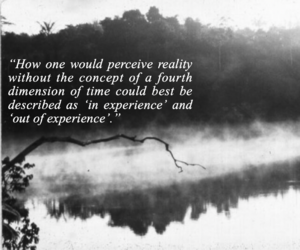Pirahã
The hiaitsiihi or Pirahã people are foragers in the Brazilian Amazon who live without authorities, gods, and perhaps even ideas of quantification and time. There's about 800 of them now. They split from the larger Mura culture an unknown time prior to Spanish colonizers' encounter in 1714.
A chief value of the hiaitsiihi, according to anthropological linguist Daniel Everett, is "no coercion; you don't tell other people what to do...If someone were really violent and disrupted the entire life of the community, they would be ostracized; they might even be killed. But that would be a very serious pathological case in the culture. By and large, they tolerate differences, and even children aren't told what they have to do that much. Life is hard enough; if children don't do what they have to do, they'll go hungry"[1]
Everett says hiaitsiihi culture is further remarkable for (quoted by Thomas Toivonen in Green Anarchy:
“the absence of numbers of any kind or a concept of counting and of any terms for quantification, the absence of color terms, the absence of embedding, the simplest pronoun inventory known, the absence of “relative tenses,” the simplest kinship system yet documented, the absence of creation myths and fiction, the absence of any individual or collective memory of more than two generations past, the absence of drawing or other art and one of the simplest material cultures documented, and the fact that the Piraha are monolingual after more than 200 years of regular contact with Brazilians and the Tupi-Guarani-speaking Kawahiv... ultimately derive from a single cultural constraint in Piraha, namely, the restriction of communication to the immediate experience of the interlocutors.”
Toivonen notes:
How one would perceive reality without the concept of a fourth dimension of time could best be described as ‘in experience’ and ‘out of experience’. This explains the Piraha peoples excitement seeing a canoe go around a river bend or why they love watching a flickering match go out as they go from being ‘in experience’ to ‘out of experience’.. Perhaps time is not linear and part of the fundamental structure of the universe, not a dimension in which events occur in sequence but a constructed dimension. And perhaps it’s possible that instead of being an objective thing to be measured, time is actually part of a mental measuring system that keeps us from descending into total anarchy.
Their use of a hallucigen in monthly rituals is "not exceptional for them but is widely used by various groups in wet tropical forests of South America." [2]
Everett thinks the Pirahã culture disproves Noam Chomsky's idea of a universal grammar and especially Chomsky's notion that all human language involves recursion (putting a word or phrase inside another phrase of the same type (for example putting the noun "machete" inside the noun phrase "the aardvark's machete"). Chomsky disagrees, referring to a paper based on Everett's earlier work. Everett replies to that paper by saying his experience living with the hiaitsiihi taught him to understand the culture better than he had when conducting his earlier field research.[3]
- ↑ Daniel Everett, "Recursion and Human Thought: Why the Pirahã Don't Have Numbers," Edge, 11 June 2007, https://web.archive.org/web/20190808091528/https://www.edge.org/conversation/recursion-and-human-thought.
- ↑ Thomas Toivonen, "A culture beyond time.," Green Anarchy 25 (Spring/Summer '08), . Retrieved from https://greenanarchy.anarchyplanet.org/files/2012/05/greenanarchy25.pdf.
- ↑ John Colapinto, "The Interpreter," New Yorker, 9 April 2007, https://www.newyorker.com/magazine/2007/04/16/the-interpreter-2.
